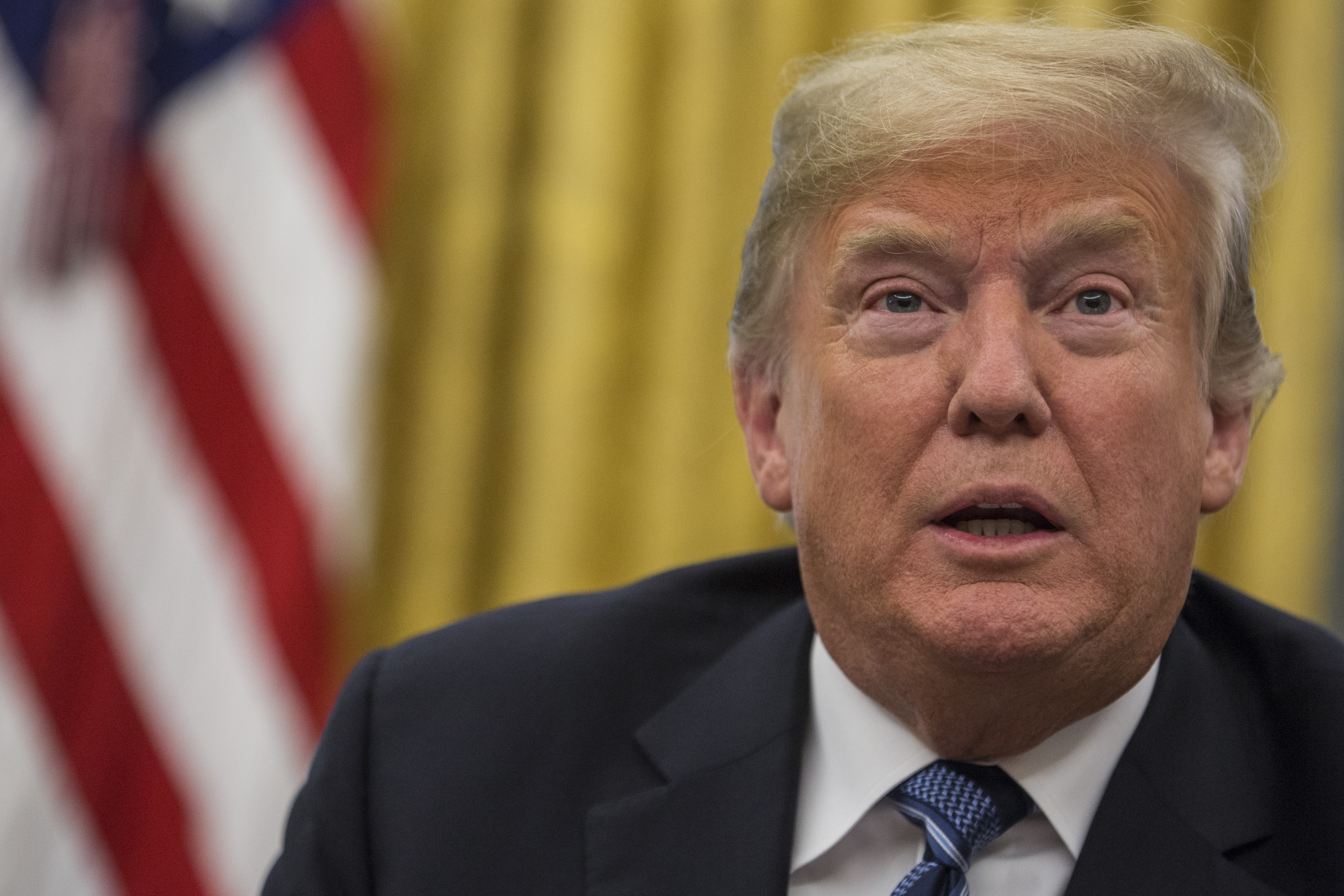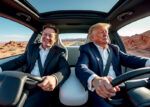Trump accuses China of election meddling in trade war
President Donald Trump said China had refused to change the unfair practices that hurt US businesses and workers (ZACH GIBSON)
Washington (AFP) – US President Donald Trump on Tuesday accused China of seeking to influence knife-edge midterm congressional elections, by taking aim at his political support base in the economic giants’ rapidly escalating trade war.
The allegation added an explosive new element to the dispute after Trump pulled the trigger late Monday on 10 percent tariffs against another $200 billion in Chinese goods from next week, with a threat of more tariffs on another $267 billion.
Beijing responded Tuesday by announcing new tariffs on $60 billion of US imports.
In a combative series of tweets Trump, whose Republicans fear losing control of both houses of Congress in November, accused China of trying to broaden its retaliation into the electoral arena. It’s an especially sensitive issue given the political maelstrom over alleged Russian meddling in the real estate tycoon’s surprise 2016 presidential victory.
“China has openly stated that they are actively trying to impact and change our election by attacking our farmers, ranchers and industrial workers because of their loyalty to me,” Trump wrote.
“China has been taking advantage of the United States on Trade for many years. They also know that I am the one that knows how to stop it,” he added.
“There will be great and fast economic retaliation against China if our farmers, ranchers and/or industrial workers are targeted!”
It was not clear what open statements by China — if any — Trump was referring to.
However, Beijing’s previous tariffs did target major US agricultural products like pork and soybeans. That hurt soybean powerhouse states like Illinois, Kansas and Minnesota, which are all toss ups in the November House races.
Recent NBC News/Marist polls have also found that the trade war — a pillar of Trump’s presidency — is unpopular in six politically important states: Illinois, Indiana, Missouri, Pennsylvania, Tennessee and Texas.
– Tearing up the rulebook –
Trump believes that his tearing up of the international trade rulebook is long overdue. His promise to end what he says are grossly skewed Chinese trade relations was a key plank of his election.
“For months, we have urged China to change these unfair practices and give fair and reciprocal treatment to American companies,” Trump said in a statement on Monday.
“These practices plainly constitute a grave threat to the long-term health and prosperity of the United States economy,” he said.
“But, so far, China has been unwilling to change its practices,” including theft and forced transfer of technology.
Once the new round of tariffs takes effect on September 24, punitive duties will be in place on $250 billion in goods the US buys from China — its largest source of imports.
This latest round of imports will face 10 percent tariffs through the end of the year, and then the rate will jump to 25 percent.
Trump warned that “if China takes retaliatory action… we will immediately pursue phase three, which is tariffs on approximately $267 billion of additional imports.”
That would amount to imposing new taxes on all the goods the US imports from China.
– Smartwatches spared –
The new taxes will hit a broad swath of products, including billions in Chinese-made voice data receivers, computer memory modules, data processors, and accessories for office equipment such as copiers and banknote dispensers — instantly making widely used goods more expensive.
However, senior administration officials told reporters the initial list announced in July was reduced by 300 product lines in response to 6,000 written comments from consumers and businesses.
The products spared included consumer electronics like smartwatches and Bluetooth devices, child safety products such as high chairs, car seats and playpens, and certain health-and-safety products such as bicycle helmets.
The removal of smartwatches and wireless headphones represents a win for tech giant Apple, which had warned the tariffs would hit its Apple Watch and Airpods product lines.
The exemption comes at a critical time for Apple, days after it unveiled its latest smartwatch and three new iPhones — which will hit stores starting Friday — in a bid to push up its growth after it slipped to third place among smartphone makers.
– Blow to consumers –
The escalating confrontation initially shook up global stock markets, but Wall Street was up early Tuesday largely on relief that Trump’s tariffs could have been more severe.
While officials said the impact on the US economy has been minimal, firms across the country have reported lost business, layoffs and possible bankruptcies as input costs rise.
US officials told reporters the lower initial tariff rate would give businesses time to find new suppliers.
That could soften the blow to consumers and manufacturers among others ahead of the midterm elections.
In Brussels, EU Trade Commissioner Cecilia Malmstrom described the new US tariffs as “very regrettable” and added that Europeans were “at odds with Washington’s methods.”
“The escalation” in the US-Chinese trade dispute “is very worrying,” said Dieter Kempf, President of the German Industrial Federation (BDI), adding however that China must “take seriously the criticism of its partners.”
Disclaimer: This story has not been edited by Siliconeer and is published from a syndicated feed. Siliconeer does not assume any liability for the above story. Validity of the above story is for 7 Days from original date of publishing. Content copyright AFP.


